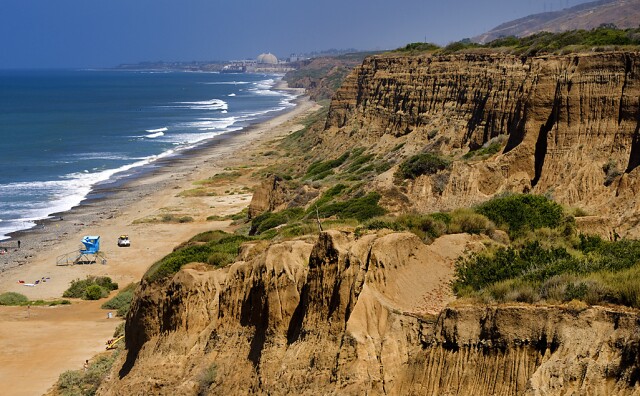Finding Community As An Immigrant In LA

The theme of LAist's Black History Month coverage this year is: “What does it mean to be Black in L.A.?” We'll publish reponses from community members and staff throughout the month. Add your voice to the conversation below.
Last week, we shared a variety of experiences about being Black Angelenos from LAist readers and a longtime staffer. Today, an LAist reader, an immigrant from Kenya, and an LAist reporter, born in Colombia and moved to L.A. in 2018, share two very different experiences on being Black in L.A.
"I am an African immigrant living in Inglewood. I couldn't have asked for a better American family than my community. I knew how to be an immigrant in America, but being Black was a whole other skill set. And thankfully, I am surrounded by men and women who teach me about Blackness every day. So for me, being black in L.A. means to be 'awakened.'"
— Peres, Inglewood
"My identity as a Black Colombian American often feels at odds with the predominant narrative of who lives and is L.A. There is so much vital and necessary celebration here of Mexican American culture and La Raza, but then so little recognition of the thousands of dark-skinned, Black Latinx folks who are essential to the fabric of this place.
"This got real for me a few years ago when someone I work with said to me, “You don’t look Colombian,” as if we’re all supposed to look like Shakira, or straight out of “Maria Full of Grace.” Latin America is very Black! But, thanks to white supremacy and deeply entrenched racism and colorism within the Latinx diaspora, our lived experiences are not the ones that make the mainstream.
"As a mixed-race Black person, I have tremendous privilege in how I present to the world. But I’ve felt discomfort in L.A. -- and within my own profession -- at having to 'choose' to fit in a racial box, ironically, in one of the most diverse cities in this nation."
— Emily Elena Dugdale, North Hollywood
MORE ON BEING BLACK IN LA
- On Being Black In LA: 'A Slow Burn Of Anti-Blackness'
- On Being Black In LA: Erasure Of The Black Community That Once Was
- On Being Black In LA: Code Switching To Survive Crossing Racial Lines
- On Being Black In LA: Being Bused Across Town Opened Up City As 'A Place Of Possibilities'
MORE FROM RACE IN LA
- The 8%: Exploring The Inextricable Ties Between L.A. And Its Black Residents
- Racism 101: Facilitating Deeper Conversations On Race
- Racism 101 on Take Two: How to Be an Ally, Code Switching for Survival, Deconstructing 'Defund the Police', Legacy of Slavery
- Race In LA: How Does Your Race Or Ethnicity Shape Your Life?
The first installment of our The 8 Percent project began exploring the inextricable ties between L.A. and its Black residents — how Black migration, community and culture have shaped and changed L.A. For Black History Month, we’re homing in on a more specific experience — yours. Tell us: What does it mean to you to be Black in L.A.?
Our news is free on LAist. To make sure you get our coverage: Sign up for our daily newsletters. To support our nonprofit public service journalism: Donate Now.
-
The severe lack of family friendly housing has millennial parents asking: Is leaving Southern California our only option?
-
As the March 5 primary draws closer, many of us have yet to vote and are looking for some help. We hope you start with our Voter Game Plan. Since we don't do recommendations, we've also put together a list of other popular voting guides.
-
The state's parks department is working with stakeholders, including the military, to rebuild the San Onofre road, but no timeline has been given.
-
Built in 1951, the glass-walled chapel is one of L.A.’s few national historic landmarks. This isn’t the first time it has been damaged by landslides.
-
The city passed a law against harassing renters in 2021. But tenant advocates say enforcement has been lacking.
-
After the luxury towers' developer did not respond to a request from the city to step in, the money will go to fence off the towers, provide security and remove graffiti on the towers.






